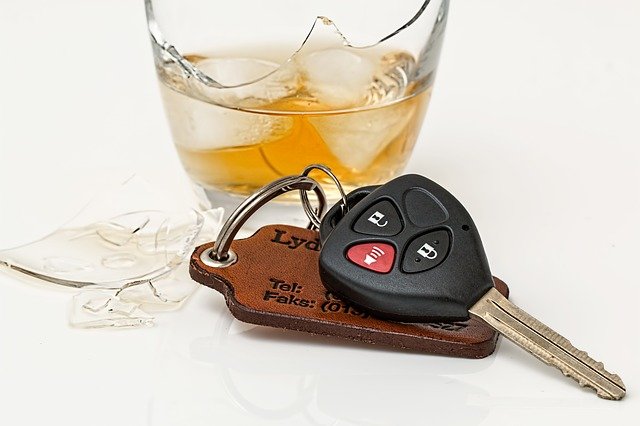The Path to License Reinstatement for DUI Repeat Offenders
Driving under the influence (DUI) is a major problem that affects not just those who do it but also public safety. In the car and legal industries, finding ways to reduce repeat DUI offenses is essential. Restoring driving privileges for people with multiple DUIs involves legal, rehabilitation, and technological factors. This is important because it impacts road safety, legal responsibility, and the ability of offenders to rejoin society.
This article will explore the complex process of reinstating licenses for DUI repeat offenders. We’ll explain what DUI is and its consequences, list the steps needed for license reinstatement, and discuss necessary rehabilitation and educational programs. We’ll also cover the technological and legal measures in place to prevent repeat offenses and the challenges offenders face.
DUI and Its Consequences
To understand the process for reinstating the licenses of repeat DUI offenders, it’s important to first know what a DUI is, the legal consequences, which may require the services of a DUI lawyer and the immediate effects for those with multiple convictions. A DUI, or driving under the influence, means operating a vehicle while impaired by alcohol or other substances. The legal consequences include fines, jail time, and mandatory educational programs, with penalties increasing for each offense.
Repeat offenders face tougher penalties, such as longer license suspensions, extended jail time, and more intensive rehabilitation requirements. They also often deal with social stigma and higher financial costs. Understanding these factors helps manage the complex process of license reinstatement for DUI offenders, balancing legal accountability, public safety, and personal rehabilitation.
The Reinstatement Process: An Overview
Getting a driver’s license back after multiple DUI convictions involves several important steps and requirements. Offenders must collect key documents, like proof of enrollment in rehabilitation programs and certificates for completed educational courses to prevent future violations. Significant fees are also involved, which can vary depending on local laws and the number of previous offenses.
The time it takes to reinstate a license can range from several months to years, depending on the suspension period. Following all these rules is essential for reinstatement, including passing any necessary tests or evaluations to show readiness for responsible driving.
Rehabilitation and Education Programs
Rehabilitation and education programs are vital for getting a license back after multiple DUI offenses. To qualify, individuals often need to complete programs that address impaired driving issues. These can include substance abuse treatment, counseling, and educational courses about the dangers of DUI and the importance of responsible driving.
Participating in these programs helps offenders learn how to avoid future violations, reducing the risk of repeat offenses. The structured nature of these programs holds offenders accountable and supports their behavior change. These efforts are important because they help individuals regain their driving privileges and become safer, more responsible drivers, aiding their reintegration into society.
Technological and Legal Safeguards
Technological and legal measures are essential for reducing repeat DUI offenses during the reinstatement period. These measures include ignition interlock devices, which prevent cars from starting if alcohol is detected on the driver’s breath, ensuring offenders cannot drive under the influence. Regular monitoring through probation officers or electronic means ensures offenders follow the terms of their reinstatement by frequently checking their compliance.
Legal check-ins require regular court appearances or meetings with legal representatives to confirm adherence to all legal obligations. Combining these technological tools with strict legal protocols creates a robust system that emphasizes accountability and reduces the risk of repeat offenses, ultimately contributing to safer roads.
Challenges and Support Systems
The path to getting a license reinstated for repeat DUI offenders is full of challenges, both visible and hidden. The financial costs can be high, including fines, fees, and ongoing expenses for required rehab programs and ignition interlock devices. Additionally, the social stigma of being a repeat offender can be overwhelming, affecting personal relationships and job opportunities.
However, there are support systems available to help with this difficult process. Government programs, non-profits, and community initiatives often provide resources like financial assistance, counseling services, and legal aid. Support groups specifically for DUI offenders can offer emotional support and practical advice, making it easier to sort through this complex situation. By recognizing these difficulties and using available support systems, offenders can better manage the reinstatement process and work towards responsible and safe driving habits.
Addressing the complexities of reinstating driving privileges for repeat DUI offenders requires a varied approach. Understanding the legal, rehabilitation, and technological measures involved is important for ensuring public safety and aiding offenders in their reintegration. Rehabilitation and education programs, alongside technological safeguards like ignition interlock devices, play a vital role in preventing future offenses. Despite significant challenges, including financial burdens and social stigma, utilizing available support systems can help offenders manage the process successfully. By fostering responsibility and legal compliance, these efforts contribute to safer roads and a more structured reintegration of DUI offenders into society.

